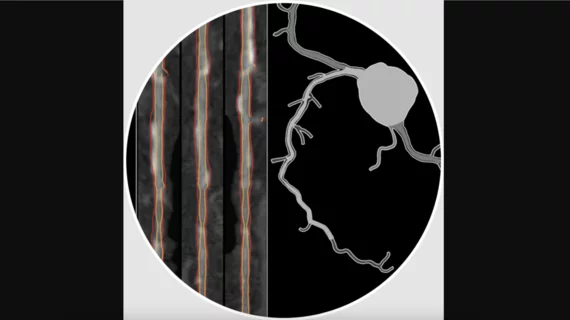AI-based coronary plaque assessments 1 step closer to Medicare coverage
Artificial intelligence (AI) platforms that evaluate cardiac imaging results and quantify coronary plaque buildup may soon be fully covered by Medicare, according to a new local coverage determination (LCD) being considered by the Centers for Medicare and Medicaid Services (CMS).
HeartFlow’s Plaque Analysis and Cleerly’s Coronary Analysis both use advanced AI models to interpret coronary CT angiography (CCTA) images. These technologies are at the center of a new LCD proposed by a group of Medicare administrative contractors (MACs) that suggests using AI-powered coronary plaque assessments on CCTA results is “reasonable and medically necessary” in certain clinical scenarios.
CMS shared details about the proposal on its website. According to the agency, the public comment period for this LCD ends on July 14.
The proposed LCD does emphasize that these technologies are “not intended to replace the skill and judgement of a qualified medical practitioner and should only be used by people who have been appropriately trained in the software’s functions, capabilities and limitations.”
If this proposal make it through the review process, it would make it much easier for Medicare patients who present with acute chest pain and no known history of cardiovascular disease to be treated by one of these advanced technologies.
“We are excited about this milestone, as it highlights the critical importance of accurately quantifying plaque in cardiovascular disease management,” John Farquhar, CEO at HeartFlow, said in a prepared statement. “This recognition by the MACs in the draft policies is a testament to the clinical value of Plaque Analysis and its potential to revolutionize how cardiovascular disease is diagnosed and treated, for all.”
“We are confident that Plaque Analysis will not only meet but exceed the rigorous standards of Medicare,” added Cara Santillo, senior vice president of market access and reimbursement at HeartFlow. “This nod of support from the MACs underscores the importance of access and equity in cardiovascular care by ensuring that all patients, regardless of background, receive the critical insights needed for treatment for cardiovascular disease.”

